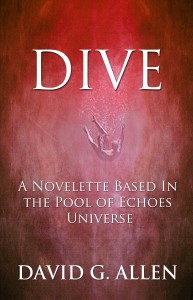Five minutes of questions, and a little patience, can turn your worst experiences into engines for great thinking.
Continue Reading...Archives For Uncategorized
Feedback is results that can be seen, measured, and acted upon. This can come from 2 different places:
- Your own personal experiences.
- Other people’s advice and mentorship.
Life is too short to make all the mistakes on your own. If you want to achieve big goals that are beyond your current level of achievement, you are going to need the guidance of other people. This will allow you to apply your efforts to the activities that you know will work, making you appear much wiser.
This may seem crystal clear to most people, but do YOU actually do it? If you have so far, then you’re a step ahead of me. If you don’t keep doing it, you won’t be ahead for long.
Not that it’s a race, but I’ve learned that the biggest thing that I can do this year to gain the most success in the least amount of time is this: Seek out advice from people who have already done what I want to do.
Seek out several sources. You can keep it to simple tweets to the people in question, a ¼ page email, or an in-person interview over coffee and lunch. It doesn’t have to be hard.
Don’t put all your eggs in one basket either. If one person doesn’t respond, have several other people ready to respond to you.
For example, several places I would like some help are:
- scheduling radio interviews
- learning how to network better
- learning how to sell to booksellers
- learning how to get started in public speaking with no previous background
These are just a few. In any of these cases I will look for people who have succeeded in these areas in the last 3-5 years, as well as people who have been doing these activities for decades.
If you want to take action on a simple thinking exercise, make it this one: What are you wanting to learn how to do? What are you struggling with? What obstacle are you afraid of facing? Finally, who can you talk to for answers (people you know personally or who you know of online)? Strangers? Is anyone in your network already who may know the types of people you’re looking for?
Plan B (to do it or not)
So what do you do if it doesn’t work out?
When you have stated an ambitious goal to someone who is well-meaning, but intimidated by your commitment, you may have heard this question.
The experts on success seem at odds with the concept of Plan B. In some books I’ve read, Plan B distracts from Plan A. Others still are strong supporters of multiple plans.
Since it is a new year and you have thought of the goals you want to achieve for the next 365 days, it’s worth taking a look at Plan B
Let’s straighten this out.
Traditional View of Plan B:
Plan A for John Doe is to get into film as an actor in Hollywood, yet culinary school is a great Plan B in case that doesn’t work out.
From this perspective, Plan B may yet detract energy that could be put into achieving Plan A.
When Plan B comes up in a debate, it creates a battle between the risk averse who see large mountains to overcome, and the risk takers who will climb those mountains with or without the supplies they might need.
Plan B redefined:
John Doe IS going to get into film as an actor in Hollywood. Plan A is to show up at auditions, enlist the help of agents and build a healthy portfolio. Plan B is to do commercials and network with independent film producers to build a fanbase and generate enough buzz to get consideration for those roles on the silver screen.
What is the difference between the first Plan B and the second Plan B?
The first Plan B detracts energy from your mind that you could use to further Plan A.
The second Plan B doesn’t compromise your life goals. Plan B 2.0 causes you to think of multiple roads to get to the same destination, all of which would move you closer to the result you want. With this type of plan B, you don’t put your emotional eggs in one basket. Your plans weave together to form a tight cord that connects you to your goals.
Best of all, the knowledge that you’ve got several ways to make it will give you more confidence to succeed in Plan A, and all worthwhile commitments benefit from confidence.
With this thought in mind, having a plan C, D, and E, even if you never use most of them, will make your mind sharper, give you better confidence, and enable you to move forward with your ideas.





